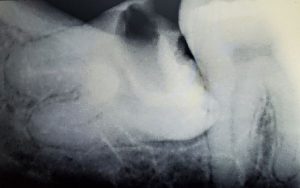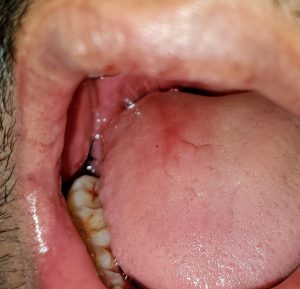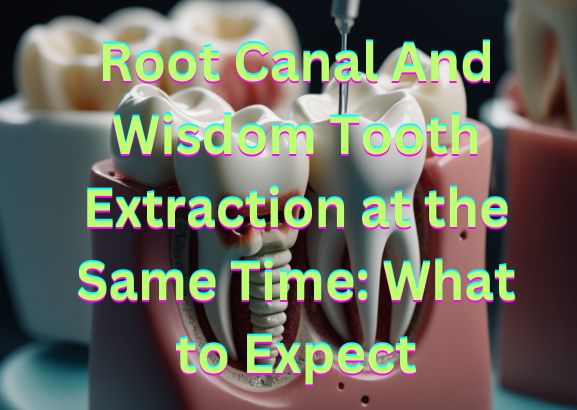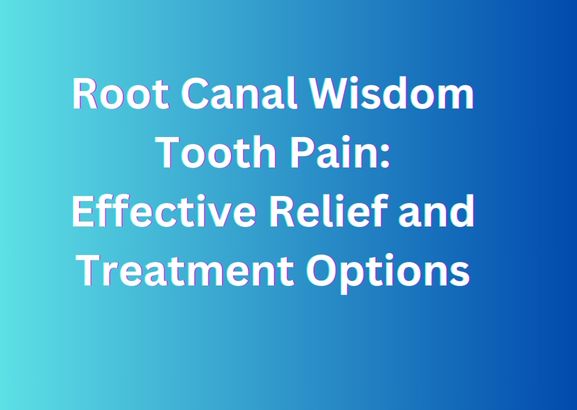Benefits of Wisdom Tooth Removal?
Last Updated on 6 months by DR. ALBIN SIPES
Wisdom tooth removal is a common dental procedure that many people undergo. While it may seem like a daunting and unnecessary task, there are actually many benefits to having your wisdom teeth removed. Wisdom teeth can cause a number of problems if they are not removed, such as crowding of other teeth, pain, infection, and damage to adjacent teeth.
Removing wisdom teeth can help to avoid these problems and maintain good oral health.
There are many benefits of wisdom tooth removal. One benefit is that it can help to improve your oral health. Wisdom teeth can often become impacted and difficult to clean, which can lead to decay and infection.
Removing wisdom teeth can also help to prevent crowding of the teeth and jaw problems in the future. Additionally, some people find that their overall appearance improves after wisdom tooth removal.

Wisdom Teeth Removal Pros And Cons?
Wisdom teeth removal is a common procedure that is performed to extract wisdom teeth, which are the four adult teeth located at the back corners of your mouth. Wisdom teeth removal can be done for a variety of reasons, including pain relief, dental crowding, and infection prevention. While wisdom teeth removal is generally a safe and effective procedure, there are some potential risks and complications that you should be aware of.
The pros of wisdom teeth removal include: – Relief from wisdom tooth pain. Impacted or partially erupted wisdom teeth can cause pain and inflammation.
Removing these teeth can provide relief from this discomfort. – Prevention of dental problems. If left untreated, impacted wisdom teeth can lead to a number of dental problems, such as overcrowding, gum disease and tooth decay.
By having them removed early on, you can help prevent these issues from developing. – Reduced risk of infection. When wisdom teeth become impacted or only partially erupt, they can trap food and bacteria around them which increases your risk for developing an infection in that area.
Removing the problem tooth (or teeth) helps reduce this risk significantly. The cons of wisdom teeth removal include: – Risks associated with any surgery.
Although uncommon, there are certain risks associated with any surgery, such as bleeding, infection, nerve damage and blood clots. Be sure to discuss these risks with your dentist or oral surgeon prior to having your procedure so that you know what to expect. – Discomfort after surgery.
You will likely experience some degree of discomfort after having your wisdom teeth removed. This is normal but can usually be controlled with over-the-counter or prescription medication. Your dentist or oral surgeon will give you specific instructions on how to manage postoperative pain. – Potential complications.

Does Removing Wisdom Teeth Change Face Shape?
The simple answer is yes, removing wisdom teeth can change the shape of your face. When your wisdom teeth come in, they can push on the other teeth in your mouth and change the way your jawbone grows.
This can cause your face to look different. If you have your wisdom teeth removed, it can also change the shape of your face because there’s now more room for your other teeth to move around. There are some people who believe that removing wisdom teeth will make their faces look thinner.
This is because when wisdom teeth come in, they often push on the cheekbones, which can make them appear more prominent. However, this is not always the case and removing wisdom teeth will not necessarily make your face look thinner. In general, having wisdom teeth removed won’t have a huge impact on the overall shape of your face.
However, everyone is different and there are always exceptions to the rule. If you’re concerned about how removing your wisdom teeth might affect the shape of your face, talk to your dentist or orthodontist to get their professional opinion.
Disadvantages of Removing Wisdom Teeth
While there are many advantages to removing wisdom teeth, there are also some disadvantages. The first reason is cost. Wisdom teeth removal can be quite expensive, especially if you need to have multiple teeth removed.
Another disadvantage is the pain and discomfort associated with the procedure. Some people experience a great deal of pain and swelling after having their wisdom teeth removed. Finally, there is always the risk of complications, such as infection, when having any type of surgery.
Wisdom Teeth Removal Impact on the Brain
Most people experience some level of discomfort when their wisdom teeth start to come in. For some, the pain is manageable and goes away on its own. But for others, the pain can be so severe that they need to have their wisdom teeth removed.
There are a few different ways that wisdom teeth removal can impact the brain. First, the surgery itself can be traumatic and lead to temporary cognitive impairment. This is usually resolved within a few days or weeks as the brain heals from the surgery.
Second, removing wisdom teeth can also lead to changes in bite alignment. This can put stress on the TMJ (temporomandibular joint) and cause problems with chewing and speaking.
Lastly, Wisdom teeth removal has also been linked to an increased risk of developing dementia later in life. This is thought to be due to inflammation caused by the surgery which damages neurons in the brain. While this risk is relatively small, it’s still something to be aware of if you’re considering having your wisdom teeth removed.
Wisdom Teeth Removal After 30
If you’re over 30 and your wisdom teeth are causing problems, you may be wondering if it’s too late to have them removed. The answer is no – it’s never too late to get your wisdom teeth removed! In fact, many adults find that they benefit from having their wisdom teeth removed later in life.
There are several reasons why you may want to consider getting your wisdom teeth removed after 30. First, if your wisdom teeth are impacted (meaning they’re growing in at an angle), they can crowd your other teeth and cause pain. Additionally, impacted wisdom teeth are more prone to developing infections or cavities.
And finally, if you’re considering orthodontic treatment (braces), it’s often best to remove the wisdom teeth first so that they don’t interfere with the alignment of your other teeth. If you’re over 30 and thinking about getting your wisdom teeth removed, talk to your dentist about whether it’s the right decision for you.
Wisdom Teeth Advantages And Disadvantages
When it comes to wisdom teeth, there are both advantages and disadvantages to having them. On the plus side, wisdom teeth can help improve your chewing function and can add support to your bite. Additionally, they can provide additional space for your other teeth to move into if they become crowded.
However, there are also some drawbacks to having wisdom teeth. For one thing, they often come in crooked or misaligned, which can cause problems with your bite. Additionally, because they’re so far back in the mouth, they’re often difficult to clean properly and are more susceptible to decay.
Ultimately, whether or not you choose to keep your wisdom teeth is a personal decision that should be made in consultation with your dentist or orthodontist.
Importance of Wisdom Teeth
Wisdom teeth often grow in at an angle instead of straight up and down like the rest of your molars. This can crowd your mouth and push your other teeth out of alignment. Wisdom teeth can also be difficult to clean, which means they’re more likely to develop cavities or become infected.
For these reasons, many dentists recommend having wisdom teeth removed even before they cause any problems. The procedure is typically quick and painless, and it can save you a lot of trouble down the road.
Conclusion
There are many benefits of wisdom tooth removal, including improving oral health, preventing overcrowding and infection, and making it easier to clean the teeth. Wisdom teeth can also cause pain and discomfort, so removing them can provide relief. In addition, wisdom tooth removal can help improve appearance by creating a more uniform smile.




